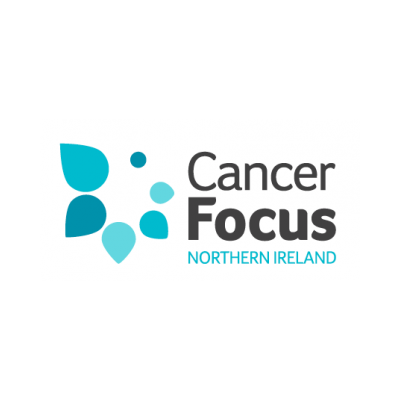Cancer Focus calls for cancer drugs equality
Leading cancer charity Cancer Focus Northern Ireland is calling for an overhaul of the current process to fund life-extending cancer medicines in Northern Ireland.
The charity hosted a round table event with 20 key clinicians, politicians and health professionals yesterday (1 May) to discuss the inequality of access to specialist drugs for local cancer patients. The meeting was chaired by Roisin Foster, Chief Executive of Cancer Focus Northern Ireland, and attended by Consultant Oncologist and Clinical Director of NI Ireland Cancer Trials Centre and Network, Dr Richard Wilson, and Professor Mark Lawler, Steering Committee European Cancer Concord (ECC) and Queen's University Belfast.
Cancer Focus NI Chief Executive, Roisin Foster said: “Currently there is a clear inequality between cancer treatments available in Northern Ireland compared to the rest of the UK. The purpose of this campaign is to ensure that the most effective drugs will be made available to local cancer patients in their time of need.”
There are 39 life-extending cancer drugs available to patients living in England through the Cancer Drugs Fund (CDF). The Fund offers treatments that have not been approved by the National Institute for Health and Care Excellence (NICE) and are not routinely funded by the NHS. More recently in Scotland, changes have been made to its access to cancer drugs system, allowing patients and clinicians a greater say on what new medicines are approved by the Scottish Medicines Consortium (SMC) for use in the NHS for end of life care and treating rare conditions.
Roisin Foster continued: “Cancer Focus NI has been concerned for some time that local cancer patients are being denied access to life-extending drugs that are currently available in England, and will soon be available in Scotland.
“We wanted to give elected representatives the opportunity to hear firsthand from some of our leading clinicians the concerns they have over access to cancer diagnostics and medicines.
“The meeting discussed proposals that the NI Executive demonstrates its commitment to redress the access to cancer drugs issue, and find the relatively small amount of funds needed to give cancer patients equality to medicines as patients in the rest of the UK.
“It was encouraging that there was broad agreement from everyone around the table that there is the will to improve the situation, but there was also the recognition that there needs to be commitment from all interested bodies – the health service, pharmacy industry, politicians and patient advocacy groups – to move this forward.”
Dr Richard Wilson commented: “Northern Ireland has contributed significantly to the field of cancer research, clinical trials and new treatments. In fact some of the medicines available on the Cancer Drug Fund list were developed and trialled in Northern Ireland, but are still not available to patients living here.
“Our cancer patients are, in some cases, unable to access treatments with proven clinical benefits available to others in England and now in Scotland. We’re simply asking for the same rights of access for Northern Ireland cancer patients.”
Professor Mark Lawler added: "Article 2 of the European Cancer Patient's Bill of Rights, which we launched in the European Parliament in Strasbourg and which received cross-party support from our MEPs, calls for optimal and timely access to appropriate treatment and care for every patient in the EU. This includes rapid access to the latest innovations in diagnosis and treatment. Cancer patients in Northern Ireland are currently being denied potentially beneficial treatments available in other parts of the UK. We need to open this debate and investigate ways in which we can, in a cost effective manner, achieve the best outcomes for patients in Northern Ireland.
“Unless we act quickly, the success that we have achieved in the last 15 years in moving Northern Ireland from the bottom to the top of the UK in relation to increased survival for many cancers will have been wasted. We need to act now or else we will face significant problems in cancer outcomes that will impact heavily not only on our future health, but also on our economy and on society as a whole.”
Allister Murphy (57), from Newtownabbey, has terminal prostate cancer and has experienced first-hand the inequality of access to cancer drugs here.
“In 2008 when I was first diagnosed I was given two to three years to live. By taking part in two clinical trials I benefited from specialised cancer drugs, that otherwise would have been unavailable to me, and that have added years to my life.
“Currently I’m undergoing a second bout of chemotherapy because I can’t get access to new drugs like enzalutamide. If I lived in England I would be able to apply to the Cancer Drugs Fund for access to these drugs but as I’m based in Northern Ireland, this option isn’t available to me.
“I believe the lack of access to cancer drugs here is discriminatory. It wouldn’t cost a lot of money to improve the system and would make such a massive difference to thousands of people’s lives.”
To move these proposals forward a forum to include patient groups, charities and other interested parties will be held by Cancer Focus NI before the summer.
ENDS

Cancer Focus Northern Ireland
40-44 Eglantine Avenue
Belfast
BT9 6DX
United Kingdom
